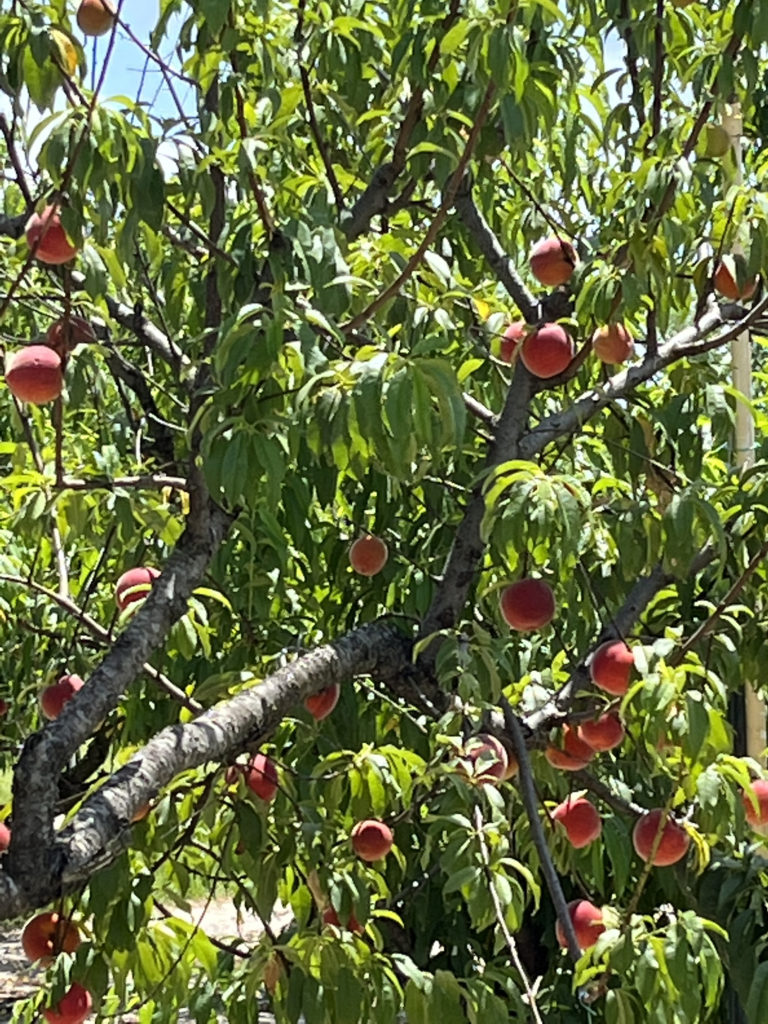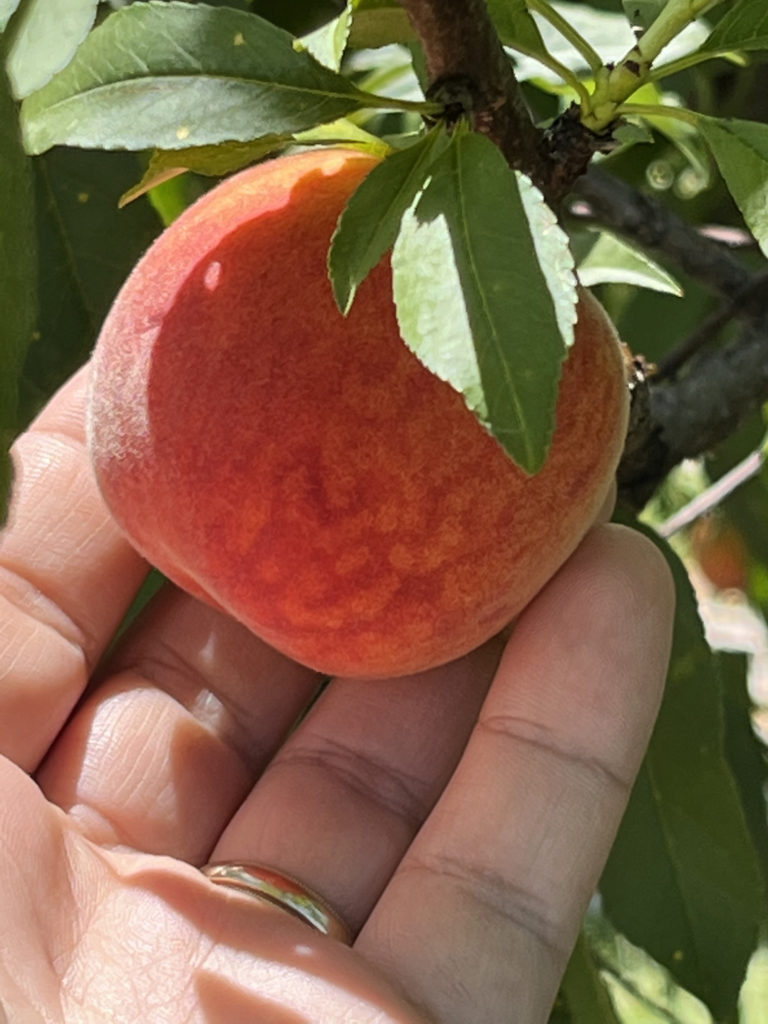By Clint Thompson
Peaches’ popularity in Florida continues to bloom, but the crop has its production challenges in the Sunshine State.

That’s why days like Tuesday’s Stone Fruit Field Day at the University of Florida Institute of Food and Agricultural Sciences Plant Science Research and Education Unit in Citra, Florida, are so vital to the industry’s future.
Whether it was learning about pest and disease control or managing low-chill varieties, attendees received important instructions that will help the industry thrive into the near future.

“I think it’s important to always be in contact with growers, provide them with information and also remind them that these cultural practices are very important for their peach orchards,” said Ali Sarkhosh, UF/IFAS assistant professor in horticultural sciences.
The industry’s future may rest on more farmers implementing the crop in the central or northern parts of the state. Climate change has significantly impacted growers in south Florida being able to produce a crop every year. They just don’t receive enough chill hours.
“We see the future for the industry and if we can move it a little bit to central (Florida) around Ocala, Lake County; we have a few growers that have been very successful in the last eight years producing high quality peaches. I think for us that can be an example that peaches can be grown a little bit far from the central or south central (parts of the state) and still produce high quality in the right production window,” Sarkhosh said. “Of course, for the local market, peaches have value in south-central and central (Florida). The main reason we would be hard to grow it in south-central Florida would be the climate change and chill hours that have reduced significantly. Peaches significantly rely on chill hours.”

Since Florida farmers are able to produce low-chill varieties, they can always offer consumers the first domestically grown peaches. That is a selling point for interested farmers.
“Locally grown peaches ripe from the tree can always have specific flavor and taste. Based off of my experience, whoever tastes these peaches really enjoy it and look forward to purchasing from different stores the next year,” Sarkhosh said.










